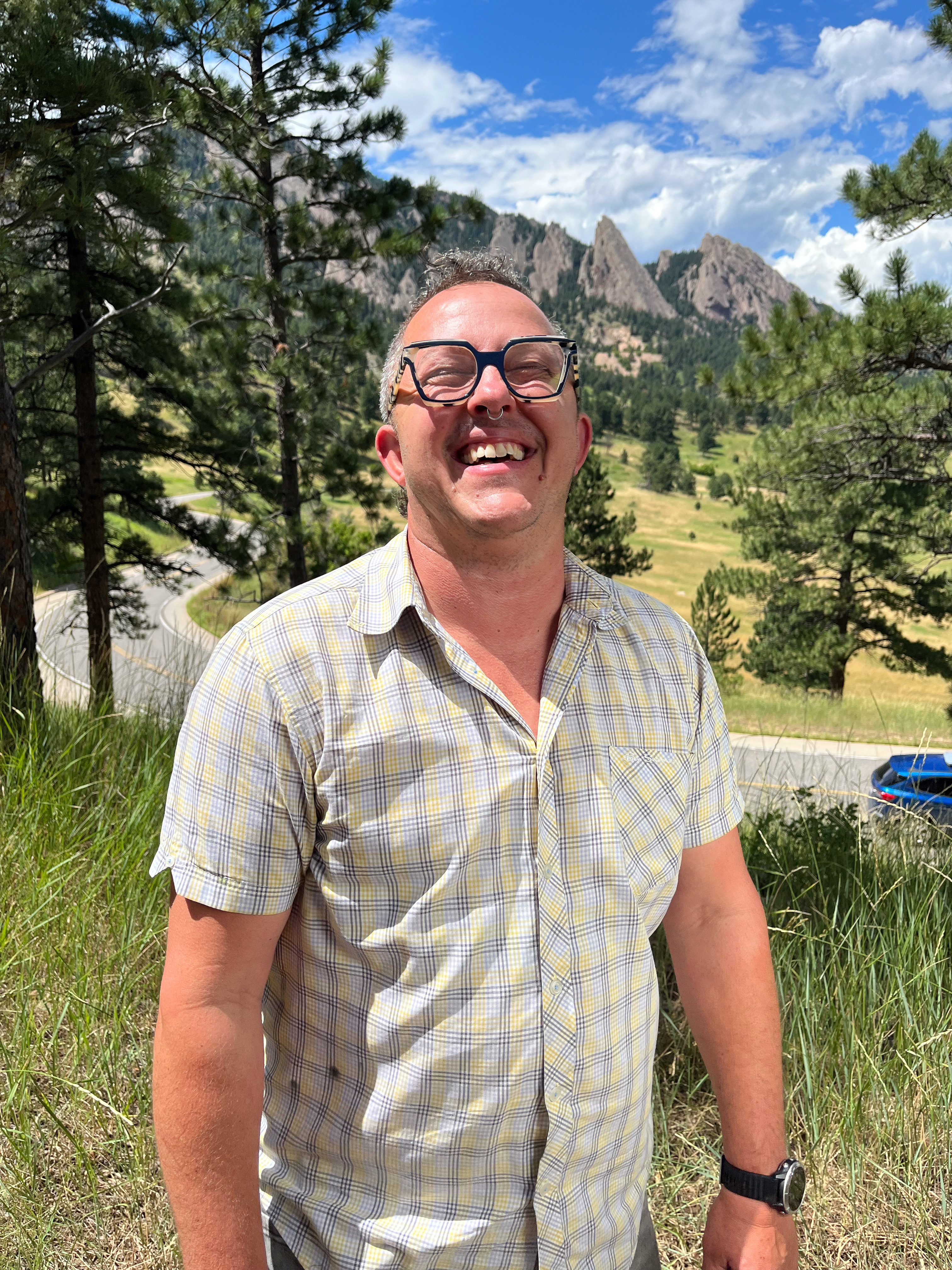"Queer Fire and Water: Tracing Underflows in Environmental Politics with Art and Science"
In this talk, Hazard will offer a tour of queer and trans methods to trace underflows in the environmental politics of rivers and fire scapes. In the Klamath Basin, where four hydroelectric dams came down this year after two decades of Tribal-led struggle, more work is needed to restore river flow and habitat for salmon, lamprey, willows, and other culturally important species. In the Karuk ancestral territory, where Hazard co-leads action research projects with Karuk cultural practitioners Leaf Hillman and Lisa Morehead-Hillman, this work start at the tops of the ridges, treating tinderbox forests with intentional fire, thereby reversing a century of fire-suppression policy. It must heal scars and legacies of dredge and hydraulic mining for gold, using Karuk protocol that centers intergenerational learning to direct geomorphological modeling. Through these cases, and a report back from a recent Queer Burn Training he organized, Hazard will explore how queer and trans approaches can affiliate with Native protocol to transform river and fire science and practice.
Cleo Wölfle Hazard serves as the Fire Advisor for University of California Cooperative Extension in Northern California. There he focuses on interplays and feedbacks between fire, streamflow, and eco-cultural relations through tribal and community-led interventions. He is also a photographer and performance artist who stages interactive eco-art projects, solo and with the queer collective The Water Underground. is the Fire Advisor of Humboldt and Del Norte counties in California. He is also the author of Underflows: Queer Trans Ecologies and River Justice (University of Washington Press, 2022).
In August of 2022, Scientific American magazine opined that “This Hot Summer is One of the Coolest of the Rest of Our Lives.” This attitude also animated a popular meme. In the original scenes from The Simpsons, Bart laments that he is having the worst day of his life and Homer comforts him by reminding him that it is merely the worst day yet. The meme turns Bart’s complaint into an apt quip about the Anthropocene. “This is the hottest summer of my life,” says Bart. “This is the hottest summer of your life so far,” Homer replies. And indeed, as predicted, the summer of 2023 was hotter than the year before.
The Simpson meme’s despairing pessimism would seem to mark the end of the longstanding attitude that has motivated so much environmental activism: the future of life on Earth must be saved and we have only narrow window of time to save it. In this drama of rescue, the future is already known. If we succeed in implementing policy changes to stop the production of fossil fuel emissions, then the future is this, but better. Realistically, and increasingly commonly, it is this, but worse. Neither option admits of a future that is not yet known or is radically discontinuous from the present.
For speakers in this lecture series, current practices and their effects on the future are far stranger than such a scenario allows. From hormone dispersion in the waterways to de-extinction technologies, the speakers in the Planetary Futures series tell stories of the weird critters that might emerge from the strange chemical soups of the present, they consider the odd feelings that come from such uncertain futures, and they interrogate the colonial histories, neoimperial presents, and sexual and racial metaphysics that underpin, distort, reject, and reimagine the notion of futurity as such. Drawing on theories of queer temporality, Black studies, postnatural aesthetics, and feminist science, our speakers consider the planet from the speculative vantage of its potential future inhabitants, rather than from the abstraction life, to highlight the tangle of relations at stake in every imagining of the planet.


